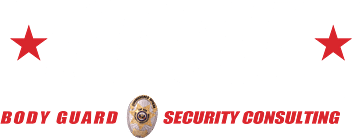
How to Get Your Guard Card in Indiana
If you keep hearing the phrase “guard card” while looking for security jobs in Indiana, you are not alone. The term pops up because many states issue individual registration cards to security officers, while Indiana focuses on licensing the companies that provide security services. What that means for you is simple to understand and practical to act on: instead of applying for a personal state card, you become hire-ready for a licensed employer, complete the training that employer requires, and step onto a post under the agency’s license and supervision.
What “Guard Card” Means in a Non-Card State
Across the industry, “guard card” is shorthand for being cleared to work security, yet Indiana does not hand out a wallet-size card to unarmed guards the way some other states do. The state licenses security guard agencies, and those agencies are responsible for screening, training, documenting, and supervising their employees. When you hear Indiana professionals say “get your guard card,” they usually mean “get qualified and hired by a reputable licensed agency.”
How Security Licensing Works in Indiana
Indiana’s framework is built around the idea that companies must prove competence and accountability before they sell security services to clients. The agency holds the license, the insurance, and the responsibility to follow the rules, while individual guards work under that licensed umbrella as employees. In practice, this puts the emphasis on an employer’s onboarding standards, client expectations, and insurer requirements, which together shape what training you will complete and what documents will sit in your personnel file.
Because the agency is the licensed party, your path is less about a single state application and more about matching what high-quality employers want to see. You clear their background screening, finish entry training, learn site procedures, and start working with confidence that your company’s compliance program backs you up on every shift.
The Hire-Ready Checklist
Before you apply, assemble a clean package that makes hiring easy for the recruiter and reassuring for the client.
- Government-issued ID with your current address
- Resume that highlights reliability, customer service, and incident reporting
- Two or three professional references who can speak to punctuality and integrity
- Comfortable, professional communication skills for greeting the public and using a radio
- Availability that matches typical shifts, including nights or weekends if possible
- Transportation that gets you to post on time in any weather
Training That Gets You Hired Faster
Indiana does not prescribe a single statewide curriculum for unarmed officers, which gives agencies room to set standards that match client risks. The quickest way to stand out is to complete an essentials course that covers the realities of the job rather than just the theory. A strong entry course emphasizes situational awareness, private property concepts, trespass and disorderly conduct basics, professionalism and appearance, radio procedures, emergency response roles, and report writing that is clear, objective, and useful to clients and courts.
Top Gun Academy’s Indiana-focused essentials training is built for that first step onto post. You learn how to observe without tunnel vision, how to communicate under pressure without escalating, and how to write reports that protect your client, your agency, and you. Employers appreciate candidates who invest in themselves because it shortens the onboarding curve and reduces the risk of early mistakes.
Applying to Licensed Agencies
When you start submitting applications, prioritize companies that are transparent about their license status and that talk plainly about training, supervision, and quality assurance. Good agencies explain how they prepare you for site work, how supervisors coach new officers, and how they handle client feedback. They are open about uniforms, scheduling, pay cycles, and post orders, which tells you they respect both the job and the people doing it.
Red flags include vague answers about training, pressure to rush onto a post without orientation, or confusion about who the client is and what the post requires. A company that takes the time to set you up the right way will take the time to support you when a shift gets complicated.
Onboarding and What to Expect
Once you receive an offer, be ready for identity verification, background checks, a fresh headshot for your file, and a review of site rules. Agencies maintain employee records so they can prove that each guard passed screening and training before working on client property. Expect a mix of classroom instruction, policy acknowledgments, and post-specific walkthroughs that show you where to stand, what to check, who to call, and how to log each tour.
Uniforms and equipment are issued based on the site. Some posts require a blazer and tie for a lobby presence, while others call for a durable patrol uniform with a reflective vest and comfortable footwear. Ask about care and replacement policies so you understand what the company provides and what is your responsibility.
Armed vs. Unarmed Roles in Indiana
Unarmed positions are the fastest entry point, and they build the foundation for almost every other assignment. Armed roles usually pay more and come with higher responsibility, which is why employers add screening steps and training requirements before you ever carry on duty. Plan on completing a firearms safety and marksmanship course, qualifying on the duty platform, and learning the client’s on-site rules for storage, transport, and use. Even in an armed role, the mission is protection and prevention, and the best officers rely on communication and de-escalation long before they reach for a weapon.
In-House Security vs. Contracted Security
You may see two broad types of jobs in Indiana: in-house positions where a business hires you directly to protect its own property, and contracted positions where a licensed agency assigns you to client sites. Both models value the same core skills, yet contracted work exposes you to more environments and procedures, which can accelerate your learning and help you discover the kinds of posts you enjoy most. In-house roles may offer steadier hours and a tight connection with one facility team, which some officers prefer once they know their strengths.
How To Start Your Own Agency One Day
If your long-term goal is leadership, the path to launching a security guard agency runs through experience, education, and a meticulous approach to compliance. Future owners build a track record as officers and supervisors, learn how to write post orders that actually work, and study the business side of operations. You will need to demonstrate competence to the state, carry proper insurance, pass background checks, and document your policies for screening, training, recordkeeping, and client communication. Many successful founders keep working relationships with mentors who already run agencies, since those relationships help you avoid common legal and operational mistakes.
Skills That Move You Up Quickly
Early promotions in private security tend to go to officers who prove three habits right away. First, they write strong reports that hit who, what, when, where, and why without opinion or filler, which gives supervisors and clients confidence that the facts are reliable. Second, they communicate professionally, using plain language on the radio and steady tone with the public, which calms tense moments and prevents small issues from becoming incidents. Third, they show initiative without grandstanding by arriving early, checking equipment, reviewing the last shift’s notes, and scanning for patterns that might affect today’s post.
The good news is that each habit can be learned. Practice writing concise summaries of everyday observations, rehearse radio phrasing until it feels natural, and build a pre-shift checklist you can repeat on every site. Consistency is a competitive advantage in this field because clients measure reliability over weeks and months, not just one shift.
Understanding Use of Force and Detention
Private security is a civilian role. You do not gain police powers when you put on a uniform, and your authority flows from property rights, client policy, and applicable law. That is why high-quality training emphasizes awareness, communication, and documentation. The safest and most professional officers use presence, voice, and posture to steer behavior, they call law enforcement promptly when crimes occur, and they preserve evidence through clear observation and careful reporting. When in doubt, keep people safe, protect the scene, and let responding officers make the enforcement decisions.
What Employers Usually Expect Before They Hire You
Most Indiana employers outline very similar minimums for unarmed roles, even though the state does not issue individual cards. You should be at least eighteen for unarmed positions, possess a high school diploma or GED, and pass a background check suitable for client sites. Customer service experience helps because much of the job involves problem-solving with visitors and employees, while calm communication and a professional appearance set the tone for every post.
Physical expectations vary by site. A hospital campus may require long walking tours, while a lobby position may involve mostly standing and greeting. Let recruiters know about any limitations early so they can match you with the right posts, and build a conditioning routine that supports twelve-hour shifts where needed.
Day-One Confidence on Post
New officers sometimes worry about missing details during their first tours, which is why a disciplined routine helps you settle in. Start each shift by reviewing post orders and any supervisor updates, then walk the route once at a relaxed pace while noting lighting, doors, cameras, and any construction work. Confirm emergency contact numbers, test your radio, and make sure your notebook is ready for times and names. The goal is to know the normal pattern of the site so you can spot the small deviations that matter.
Report Writing That Protects You and Your Client
A good report is your professional memory, and it becomes your best defense when questions arise weeks later. Write in short, factual sentences, avoid speculation, and include timestamps and locations. If you took action, state what you did and why, quoting policy language when it helps. If another person made a decision, include their name and role, and attach any photos or badge numbers in the format your agency uses. Consistent, objective writing keeps everyone aligned and reduces friction with clients.
De-Escalation as a Daily Skill
Most shifts are quiet until they are not, and the difference between a minor interaction and a major incident often comes down to how you speak and where you stand. Practice a calm tone, leave people an easy path to comply, and ask open-ended questions that let them talk rather than feel cornered. Learn a few phrases that buy time, such as “Help me understand what you need,” or “Let us step over here where it is quieter,” because time and space are your best tools for lowering tension.
Career Paths Beyond the First Post
Once you have six to twelve months of strong performance, you can start exploring specialized tracks. Corporate campuses value officers who learn visitor management systems and access control platforms, hospitals prefer candidates who master patient-centered de-escalation, and distribution centers look for people who understand freight procedures and perimeter patrol. Field training officer roles lead to supervision, where you learn scheduling, coaching, and client communication. Every one of those steps builds credibility if you later decide to help run operations or launch your own agency.
Ready to Train and Get Hired?
If you are serious about starting in security the right way, begin with practical training that teaches what to do on post, pair it with a clean, professional application, and target reputable licensed agencies that invest in supervision and coaching. Top Gun Academy can help you build day-one confidence, from situational awareness and report writing to client service and post order execution. Bring your work ethic, your attention to detail, and your willingness to learn, and we will help you turn “guard card” confusion into a clear, reliable path to steady shifts and a real career in Indiana.
